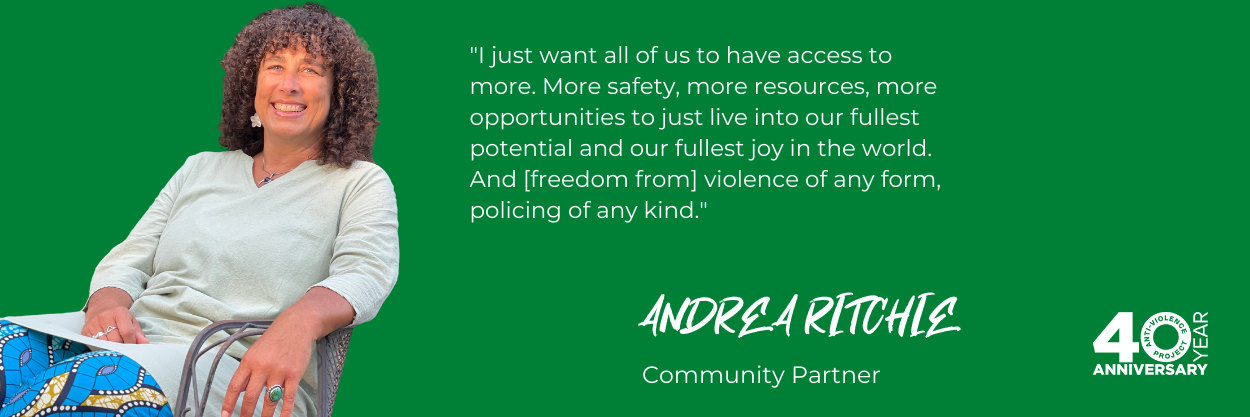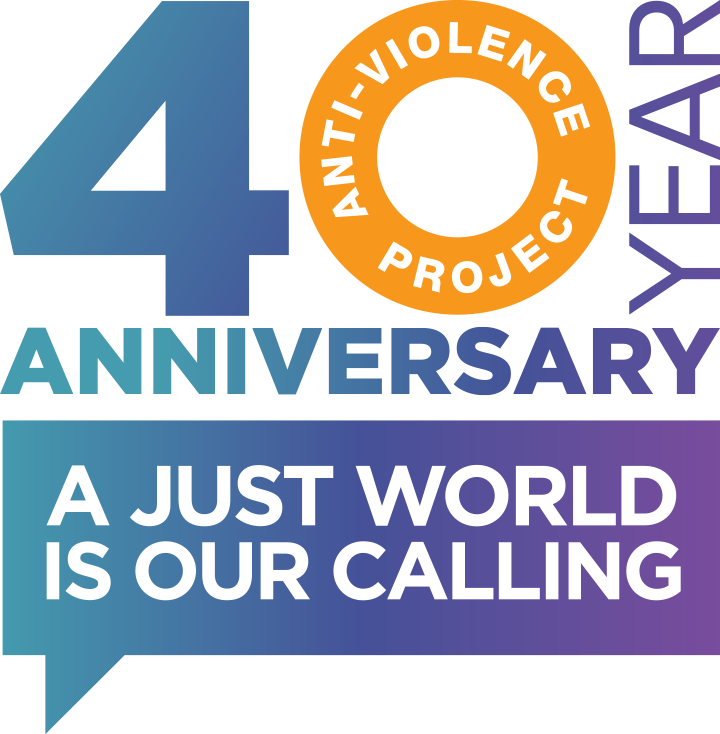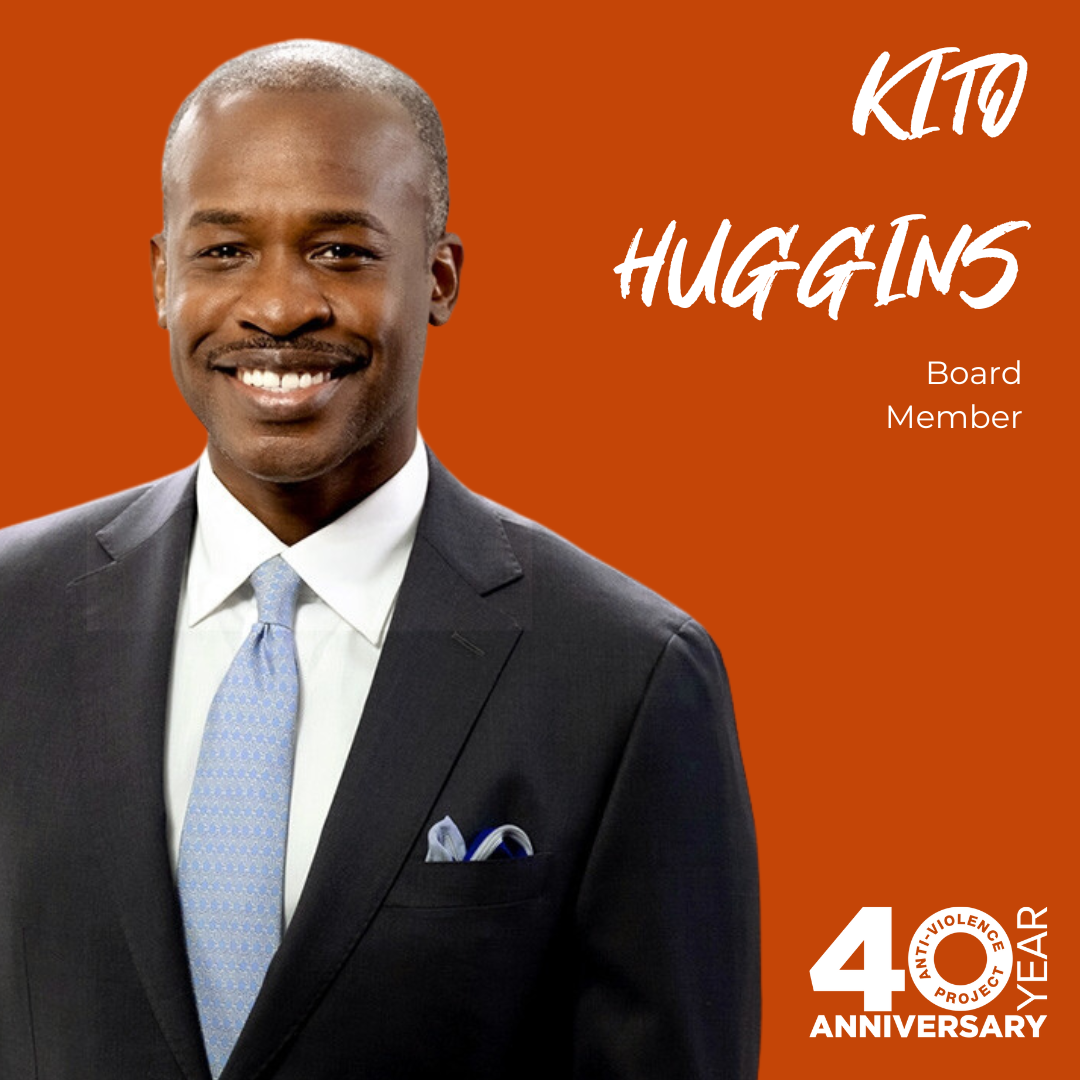
This interview has been shortened and condensed for clarity.
One of the first things Andrea Ritchie remembers saying was, “It’s not fair.”
She would stomp her feet and enact her first form of protest which would later inform her work as an organizer.
Her book Invisible No More documents the history of state violence against women of color. Andrea has collaborated on essential texts like Queer (In)justice — a study on the criminalization of LGBT people in the US — and “SayHerName,” a report about police violence against Black women co-written with Kimberle Crenshaw.
Andrea Ritchie’s history with the transformative justice movement as a writer, lawyer, and organizer, is an inspiration for activists everywhere. We caught up with her about her work with AVP.
When and how did you first learn about AVP?
I’ve had a personal connection to AVP and the people who have worked there over the years, who I’ve been in community with, appreciated, organized with, and collaborated with. But I first encountered AVP through research for Amnesty International. AVP reports were one of the very few sources of information about police violence against queer and trans people at that time. AVP was one of the few places that was paying attention to and documenting queer experiences of policing at a time when everyone was wanting more police response to queer folks.
What really informed my work too, was the way AVP went national with NCAVP, and sort of supported these projects across the country, and then put out these national reports around policing and domestic violence and homophobic and transphobic violence. It feels like without AVP we would never have had a national picture of what that looked like and that they also really modeled what it means to do data collection for our communities, by our communities.
Can you describe your experience witnessing and/or being part of AVP’s work?
AVP was central to negotiating new policies for the NYPD on interactions with LGBT folks, particularly trans and gender non-conforming folks. And those negotiations happened because I filed one of several lawsuits against the NYPD.
Organizing with Lala Zannell around Stop and Frisk in New York City was the best in the sense that we were really together thinking about how to make sure [police reform] was queer, make sure that it was foregrounding Black trans folks.
Every time I organized with AVP, they brought power, they brought resources, they brought research and they just brought really fierce and brilliant organizers. So I feel like I’ve been engaged with AVP across many generations.
How did the way you grew up influence your work?
Growing up in a patriarchal mixed-race household, I just was like, “This can’t continue.” My family had a patriarch who was also white and a mom who was Black and an immigrant — it felt pretty clear early on what side I was on. And that’s kind of how the rest of my life has looked.
I have loving and complicated relationships with everyone in my family, so it’s not as cut and dry. But I think growing up in patriarchy, and white supremacy, and on colonized land, and with a connection to the Global South, and experiencing some of my early years in the Global South, looking to the Global North, that just kind of shaped my understanding of how the world operates and how I’m not okay with it operating.
Why do you continue to do what you do?
I mean, just a deep thirst and desire for a world that’s safe for everybody. And that is particularly safe for my queer and trans family. My migrant family, my disabled family, everyone who is living at multiple dangerous intersections. I just want all of us to have access to more. More safety, more resources, more opportunities to just live into our fullest potential and our fullest joy in the world. And [freedom from] violence of any form, policing of any kind, really including gender policing that we experience outside of police and inside of policing [which]…gets in the way of safety, gets in the way of thriving. And so that’s what drives my work, and AVP’s work.
What’s one of the most important things you’ve learned in your work as an organizer?
That the changes we want to see in the world, we’re not going to see with a few hundred people working full time at it. The change we want to see in the world requires tens of thousands of people constantly engaged.
Organize wherever you are. I didn’t go to school for this. My undergrad degree is in agriculture. I became a lawyer much later in my journey after I’d already been organizing for a decade. When I was a farmworker, I organized with farmworkers. When I was a factory worker, of course, I was organizing with the factory workers. Of course, I’ve been a union member of every job I’ve ever been in and I’ve been organizing unions and gotten fired for them at jobs. Wherever you are, think about how to collectively change the conditions.
And most of us do that. We organize in our own families. We organize in our friend communities, we organize in our cultural communities. So it’s about channeling that, recognizing that, and channeling it. It’s not a special job. It’s just being a human, trying to make a better world.
What’s a piece of advice you’d give to someone who wants to be more involved?
Find something you’re passionate about and do it. You can change the world any number of ways. Our lives are short and we should do what we love as much as possible. So if you love talking to people, there’s plenty of outreach jobs for you. Mutual aid is outreach, knowing your neighbors and setting up a phone tree in your building to create greater safety for everyone is outreach.
If you’re an artist, there’s so many ways that we need more creativity in our movements. If you are an introvert, there’s so many jobs for you. If you love detail and spreadsheets, there’s just so many ways to enter. When people sort of ask me about qualifications to be an activist, it’s like, let’s see, one of my first jobs was being a domestic worker, one of my other jobs, was being a farm worker. Then I was a DJ, like there’s no school for this. There’s no Ph.D. in this. I just came to it because it was work that I wanted to do.




